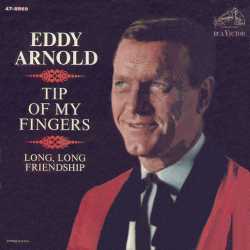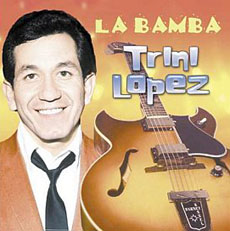Eddy Arnold
From Wikipedia, the free encyclopedia
Background information
Birth name Richard Edward Arnold
Also known as Tennessee Plowboy
Born May 15, 1918 (1918-05-15) (age 88)
Origin Henderson, Tennessee, USA
Genre(s) Country Music
Pop Music
Occupation(s) Singer
Instrument(s) Guitar
Years active 1946 - Present
Label(s) RCA Records
MGM Records
Website
www.eddyarnold.com
Eddy Arnold (born May 15, 1918) is an American country music singer who is second to George Jones in the number of individual hits on the country charts but, according to a formula derived by Joel Whitburn, is the all-time leader in an overall ranking for hits and their time on the charts. From 1945 through 1983 he had 145 charted songs, including 28 number-one hits.
Early years
Born Richard Edward Arnold in Henderson, Tennessee, he made his first radio appearance in 1936. During his childhood, he lost both his father and the family farm. When he turned 18 he left home to try to make his mark in the music world.
Arnold's formative musical years included early struggles to gain recognition until he landed a job as the lead male vocalist for the Pee Wee King band. By 1943, Arnold had become a solo star on the Grand Ole Opry. He was then signed by RCA Victor. In December of 1944, he cut his first record. Although all of his early records sold well, his initial big hit did not come until 1946 with "That's How Much I Love You." In common with many other country and western singers of the time, he had a folksy nickname: "The Tennessee Plowboy."
Managed by Col. Tom Parker (who later went on to control the career of Elvis Presley), Arnold began to dominate country music. In 1947-48 he had 13 of the top 20 songs. He successfully made the transition from radio to television, appearing frequently in the new medium. In 1955, he upset many in the country music establishment by going to New York to record with the Hugo Winterhalter Orchestra. The pop-oriented arrangements of "Cattle Call" and "The Richest Man (In the World)", however, helped to expand his appeal beyond its country base.
With the advent of rock and roll, Arnold's record sales dipped in the late 1950s. Along with RCA Victor label-mate Jim Reeves, he continued to try to court a wider audience by using pop-sounding, string-laced arrangements, a style that would come to be known as the Nashville sound.
Second Career
After Jerry Purcell became his manager in 1964, Arnold embarked on a "second career" that surpassed the success of the first one. In the process, he succeeded in his ambition of carrying his music to a more diverse audience. Already recorded by several other artists, "Make The World Go Away" was just another song until recorded by Arnold. Under the direction of producer Chet Atkins, and showcased by Bill Walker's arrangement and the talents of the Anita Kerr Singers and pianist Floyd Cramer, Arnold's rendition of "Make the World Go Away" became an international hit.
Bill Walker's precise, intricate arrangements provided the lush background for 16 straight Arnold hits through the late 1960s. Arnold started performing with symphony orchestras in virtually every major city. New Yorkers jammed prestigious Carnegie Hall for two concerts. Arnold appeared before the Hollywood crowd at the Coconut Grove and had long, sold-out engagements in Las Vegas and Lake Tahoe.
After having recorded for RCA Victor since the 1940s, Arnold left the label to record four albums for MGM Records in the 1970s, posting one hit ("If The Whole World Stopped Lovin' "). He then successfully returned to RCA Victor with both the album Eddy, and the hit single "Cowboy", which evoked stylistic memories of his classic "Cattle Call." After a few more RCA releases, he retired from active singing; however, he did release a new RCA album, After All These Years in 2005 at the age of 87.
Reasons for success
There are several reasons for Arnold's great success. From the beginning he stood out from his contemporaries in the world of country singers. He never wore gaudy, glittering outfits. He sang from his diaphragm, not through his nose. He avoided the standard honky-tonk themes, preferring instead to sing songs that explored the intricacies of love.
Arnold also benefitted from his association with excellent musicians. The distinctive steel guitar of the late Roy Wiggins highlighted early recordings. Charles Grean, once employed by the Glenn Miller Orchestra, played bass and wrote early arrangements, adding violins for the first time in 1956. Chet Atkins played on many of Arnold's records, even after he started serving as producer. Bassist, Bob Moore, the most recorded musician in history, first performed on the road with Eddie Arnold on the 1954 RCA Caravan and later performed on 75% of Mr. Arnold's hit recordings. Arnold also benefited from the management of Col. Parker, who guided his first career, and Jerry Purcell, who masterminded the second.
The most important factor for his success, however, was his voice. Steve Sholes, who produced all of his early hits, called Arnold a natural singer, comparing him to the likes of Bing Crosby and Enrico Caruso. Arnold worked hard perfecting his natural ability. A review of his musical career shows his progression from fledgling singer to polished performer.
Arnold's longevity is exceptional. For more than 50 years, he has transcended changing musical tastes. His recent concerts attract three generations of fans. To some he also serves as a role model; in a field often awash with alcohol and drugs, he has remained temperate. In an era of frequent divorces, Eddy and Sally Arnold have remained together for 60 years.
Arnold has been honored with induction into the Country Music Hall of Fame (in 1966), been voted Entertainer Of The Year, and received the Pioneer Award. Over his career, Arnold has sold over 85 million records and had 147 songs on the charts, including 28 Number 1 hits on Billboard's "Country Singles" top. Among his recordings are songs for mothers and children, hymns, show tunes, and novelty numbers. Probably, however, Arnold is best known for his way with a love song.




